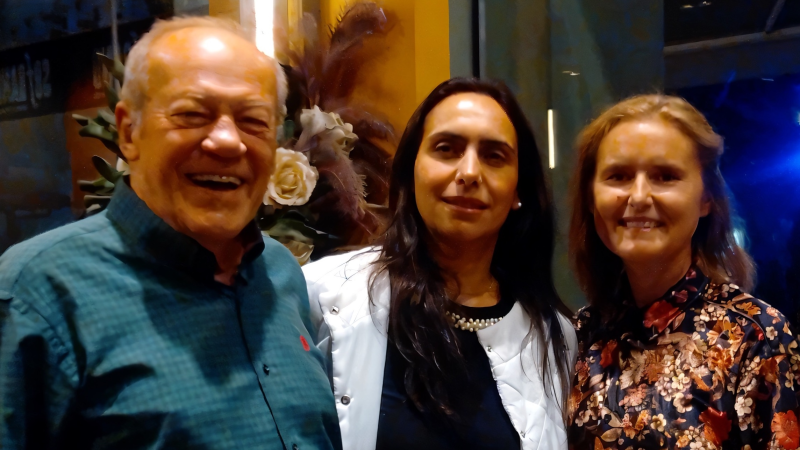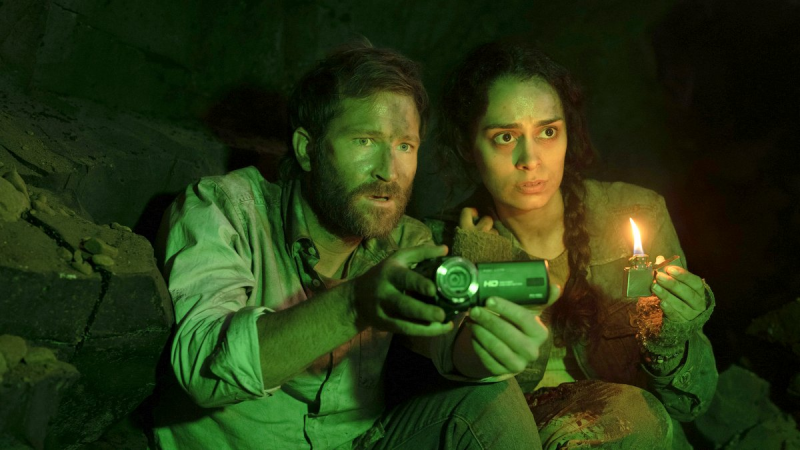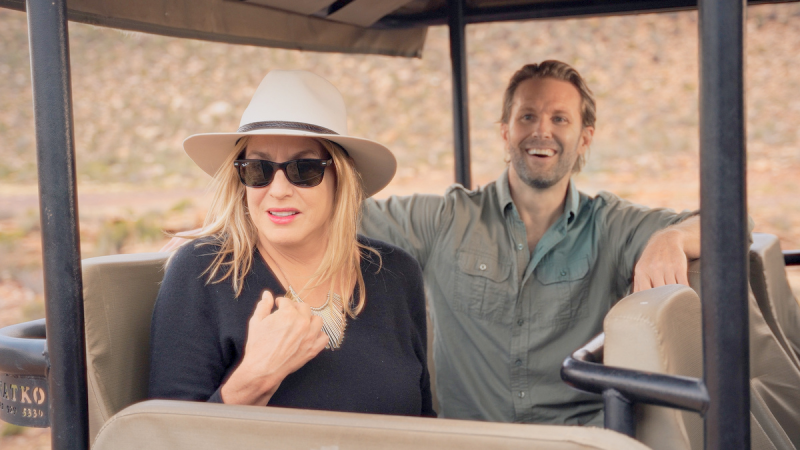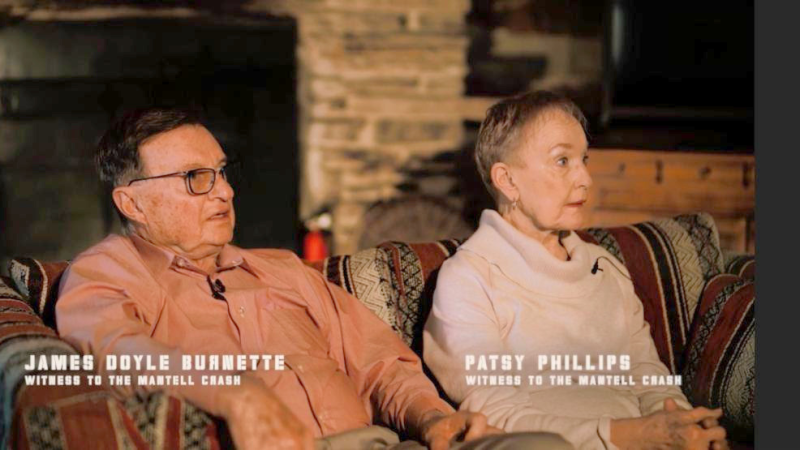If you experience writer’s block, you’re not alone. It happens to almost everyone
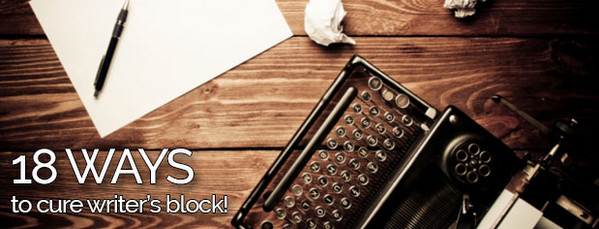
Break Through Writer’s Block
Here are 18 ways to unblock yourself and put your creativity back to work:
1. Call it “Incubation”
The term, writer’s block isn’t completely accurate because it implies that the problem has been imposed upon you—it’s something you have. Instead, I prefer the term, incubation because that’s something you do. Incubation reflects the truth–that even if you’re struggling, you’re actively involved in the creative process.
2. Write Something Unusual
One of my clients, a spy novelist, takes creative breaks by writing children’s stories for his own kids—low pressure, doesn’t take too long, and is a refreshing change of pace.
3. Write Under A Pseudonym
Decide that you’ll write and send out the project that’s vexing you under an assumed name. Take some time to decide on what your name will be, and include it as your byline. This technique has worked for Richard Bachman, Mark Twain, John LeCarre, and more.
4. Get in the H2O
It worked for Archimedes–it can work for you.
5. Repetitive Physical Activity
– Clean the kitchen
– Do laundry
– Sweep the floor
– Wash the car by hand
By the time you get a flash of insight, something will be clean.
6. Creative Physical Activity.
– Cook or bake something you don’t ordinarily make.
– Build something with your hands, e.g., a model airplane, a new desk.
– Knit, sew, paint, collage.
Incubation is what occurs to me when I see those scenes where a guy is making one of those boats in a bottle. It’s supposed to indicate someone who plans methodically, but I always think, “I bet that guy is stuck in Act II.”
7. Travel
I’ve read that when Steven Spielberg gets stuck on a movie, he takes a long drive in his car. Composer Steve Reich rides around on the NY subway. One of my favorite things to do is to be a tourist in my own town. I drive around and explore new neighborhoods.
8. Take A Long Walk
There’s something special about walking that allows your attention to wander in a valuable way.
9. Organize Your Books..The act of coming into contact with lots of other ideas and sorting them can trigger an insight.
10. Go On A Media Binge.
Instead of your scheduled writing time, watch movies and TV. Or read books and magazines, and let enthusiasm be your only guide.
11. Go On A Media Fast
Don’t watch TV or movies, read books or magazines, or listen to podcasts or news. Take a break from consuming information and stories. It’s amazing how much time and mental space you’ll realize you have. And when you make space, new ideas come in….
12. Take A Class That’s Not About Writing.
Use your writing time to enroll in a weekly class that interests you. Classes like photography, painting, improv comedy, rock climbing, krav maga, cooking, salsa dancing or playing guitar.
13. Write In A New Environment Famed writing teacher Natalie Goldberg is a big proponent of writing outside your home. Some locations for you to consider:
– A local café
– The library
– A park
– The airport
14. Write With Other.
Tools Most writers work on computer or typewriter. Here are some alternatives.
– Pen and paper.
– Audio recorder (then transcribe).
– Voice recognition apps: Dragon Naturally Speaking 11 (for PC), Dragon Dictate 2.5 for Mac.
15. Prompt Yourself.
Sometimes, you can shake up the problem by speculating from a prompt you give yourself. Try prompts like.
– What I’m trying to say here is (____).
– What I really want to write about is (___).
– The exact wrong thing to happen here would be (___).
16. Create A New Title.
One of the ways to figure out how to move forward with your project is to re-title it. Create several possible titles and test them on your friends to see what stands out.
For a more detailed title-creation process, see Chapter 10. Good in a Room: How to Sell Yourself and Your Ideas and Win Over Any Audience.
17. Hold The Question
“Holding the question” is a targeted form of incubation. Rather than completely removing your attention from the project. Ask yourself a specific question throughout the day, e.g.
– What Act III “battle scene” best exemplifies my theme?
– What would be a good introductory scene for my hero?
18. Break Down The Project Into Smaller Pieces.
Mark Twain said, “The secret of getting started is breaking your complex overwhelming tasks into small manageable tasks. And, then starting on the first one.” Here are smaller tasks I have find to be helpful.
– Organize project files.
– Brainstorm new ideas about (___) Research (___).
For more ideas about how to break complex projects down into manageable tasks. See David Allen’s book, Getting Things Done: The Art of Stress-Free Productivity.
Hang In There
Approach your block like a period of incubation. Let your mind take an active rest. Use the techniques above to encourage development and growth. That’s how you get the most of the experience, get back on track quickly, and keep your creative juices flowing.
You can comment below or join us on Facebook, Instagram! or Twitter
INDIE ACTIVITIES
Broken Bird, Biracial Girl Conflict with Culture and Identity
A Short Film by Rachel Harrison Gordon is a coming of age drama SocialsWebsiteIMDbLinkedInInstagramVimeo
Year One with Elizabeth Yu A Coming-of-Age Drama Releases November
Freestyle Acquires Elizabeth Yu Coming-of-Age Drama YEAR ONE for November Release
Scurry One-Shot Apocalypse Horror by Luke Sparke Out Oct 3 on Digital
Luke Sparke’s One-Shot Horror Sci-Fi Scurry
An American Abroad by Marcia Kimpton Hilarious Rom-Com Debuts October
Hilarious Rom-Com Launches Digital Debut on VOD Platforms October 3, 2025
Lost Contact: UFOs After Wartime Debuts on Digital Platforms October 7
New Documentary Dives into World War II Mystery



